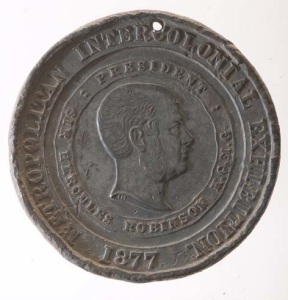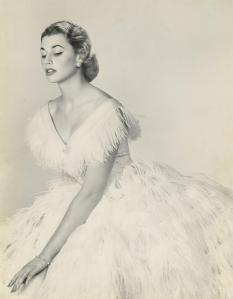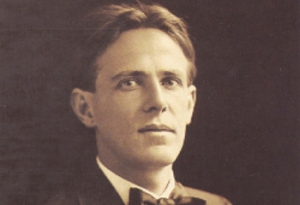Tags
Arabic names, aristocratic names, created names, famous namesakes, fictional namesakes, Greek names, hebrew names, Indian names, international name popularity, Irish names, Latin names, modern names, Mongolian names, mythological names, name history, name meaning, name popularity, name trends, names from television, names of rivers, nicknames, Norwegian names, polynesian names, Russian names, saints names, Scottish names, Sindarin names, Slavic names, unisex names
These are ten names given to girls which I saw only once in the birth announcements of last year. They are not all rare (and some of them are popular in other countries even if uncommon here), but they are at least names you don’t see every day.
Aviva
Feminine form of the modern Hebrew name Aviv, meaning “spring”. The word aviv refers to that time of year when grain crops are ripening, is a month of the Jewish calendar, and well known from Israel’s capital Tel Aviv, meaning “Spring Hill”. The names Aviv and Aviva have also become commonly used in Russian-speaking countries. The American philosopher Noam Chomsky has a daughter named Aviva, who is a historian and activist, and you might have seen Aviva Dreschel on The Real Housewives of New York City. Another TV Aviva was pretty schoolgirl Aviva “Viv” Newton from Home and Away, played by Mouche Phillips back in 1990. Although Aviva is a rare name in Australia, it fits in perfectly with current name trends for girls, and does not look at all out of place next to popular Ava and fashionable Vivian. Despite the name’s origin, I suspect many people will automatically connect it to the Latin viva, meaning “alive”. However, this dovetails nicely with the true meaning, as spring is a season of new life. Avi, Viv, Eva, Evie, and Viva are obvious nicknames – the last one is also a brand of paper towels. Vivka is a traditional Russian pet form.
Clodagh
Modern Irish name taken from the name of the River Clodiagh, which runs through the counties of Tipperary and Waterford. There’s a small river with the same name in Kilkenny, and you can find variations of the name all over Ireland. There’s a River Clydagh in Mayo, a Clady Water in Antrim, and towns with names such as Claudy in Derry and Bunclody in Wexford, at the foot of the River Clody, which is yet another river with basically the same name. The name is derived from the Gaelic for “wash, clean” – baby name sites often tell us that Clodiagh was a goddess of water in Irish mythology, but nothing is known of such a deity, although it’s not implausible. The name is said to have first been bestowed in 1897 on the youngest daughter of John Beresford, 5th Marquess of Waterford, giving the name aristocratic origins. Lady Clodagh married the son of an English earl and wrote memoirs, gaining a wider audience for her name. Clodagh is a popular name in Ireland and Northern Ireland, being in the Top 50 of both countries. Pronounced KLO-da, this is an Irish heritage choice reminiscent of Chloe and Claudia.
Eilidh
Medieval Scottish name. Despite the rather daunting spelling, it is very easy to pronounce – AY-lee. It is usually said to be the Scottish equivalent of Helen, although seems much more likely to be a form of Elionoir (said AY-lee-nuh), the medieval Scottish form of Eleanor, due to the usual medieval mix-up between Eleanor and Ellen. It has also been linked to the Irish name Eileen, the name Evelyn, and so august a source as the Oxford Press suggests it as a Scottish medieval pet form of Elizabeth. Eilidh was a common name during the Middle Ages, but went out of use and was revived in the 20th century so you can see it as both ancient and modern. It’s a popular name in Scotland, and is currently #22. This is a charming Caledonian choice whose sound fits in with familiar names like Ellie, Ayla, Hayley and Kaylee, and due to the competing theories of origin, could be used to honour multiple women at once.
Liv
Norwegian name from the Old Norse hlif, meaning “shelter, protection”. In modern Norwegian, it coincides with the word for “life”. Both these meanings bring to mind the character of Líf from Norse mythology: it is foretold that at the end of the world, she and her male partner Lífþrasir will survive by hiding in the World Tree, and from them will new generations of humans be born (their names can be translated as Life and Life’s Lover). This gives it an irresistible connection to the name Eve. The name Liv became well known in the English-speaking world through the award-winning Norwegian actress Liv Ullman, who starred in several Ingmar Bergman films. The American actress Liv Tyler was named after her – Tyler’s mother saw Liv Ullman on the cover of TV Guide a few months before Liv Tyler was born. The name Liv is popular in Scandinavia, Belgium, and The Netherlands, and doesn’t seem unfamiliar because of popular Olivia. Short and simple with two great meanings, this is a rare but very usable name.
Nadia
Can be a variant of Nadya, a short form of the Slavic name Nadezhda, meaning “hope” (in some Slavic languages, Nadia actually coincides with the word for “hope”). Nadia has an extensive history of use, being used in English-speaking countries, Latin America, Scandinavia, France, Italy and Spain, as well as in Russia and Eastern Europe. Nadia is also an Arabic name, a transliteration of Nadiyyah, which can be translated as “tender, delicate”, or “the caller”, to suggest one who inspires others to a higher cause. Nadia is a popular name in Spain and Portugal, and most popular in Poland, as well as being widely known in the Arabic world. In Australia, Nadia joined the charts in the 1950s at #348; one of the names introduced by post-war immigration. It peaked in the 1980s at #181 and is currently around the 200s or 300s. This is a multicultural choice with two positive meanings that will be familiar almost everywhere.
Rhea
In Greek mythology Rhea was one of the Titans, the daughter of the earth goddess Gaia and sky god Uranus. The sister and wife of Cronus, the god of time, Rhea was the mother of the chief Olympian gods and goddesses. It was she who helped save Zeus from being killed by his father, tricking Cronus by presenting him with a stone wrapped in a blanket instead of a baby god. As such, she was venerated as the mother of the gods, and as a mother goddess and guide of destiny; she is often depicted driving a chariot pulled by two lions. The mother of Romulus and Remus, and the mother of Hercules were both named Rhea after the goddess. The meaning of Rhea’s name is uncertain. It’s traditionally derived either from the Greek word for “ground”, or from “flow, discharge”. Another suggestion is that it comes from the word for “pomegranate”, a fertility symbol. It’s quite possible that the name is pre-Greek and the meaning unrecoverable. Pronounced either REE-uh or RAY-uh, Rhea is an uncommon name but is simple to spell and say, and fits in well with current naming trends (not to mention the fashion for mythological names). It’s also a good multicultural choice, as it sounds like European Ria, used as a short form of names like Maria, and also like the Indian names Riya and Reya.
Serena
Latin name meaning “serene, tranquil”. There is a legendary Saint Serena, said to be the Christian wife of the Emperor Diocletian; Diocletian’s wife was actually Saint Prisca, sometimes called Saint Alexandra just to confuse things further. There was a famous Christian noblewoman named Serena in ancient Rome, married to a high-ranking general and cousin to the emperor. The story goes that she took a necklace from a statue of Rhea Silvia, the legendary mother of Romulus and Remus, and placed it around her own neck. The last Vestal Virgin cursed her for her impiety, and after this Serena was troubled by nightmares about her own death; these dreams proved prophetic when she was falsely accused of conspiring with the Goths and executed. The name Serena first entered the charts in the 1960s at #515; this was the era when Serena was Samantha’s mischievous brunette cousin on Bewitched (played by Elizabeth Montgomery in a wig). The name mostly rose after that, peaking in 2009 at #190: it’s now around the 200s. A popular name in Italy, this is another multicultural choice with a famous namesake in American tennis champ Serena Williams, and numerous fictional namesakes.
Tauriel
Tauriel is a character in The Hobbit movie series by Peter Jackson, played by Evangeline Lilly. She doesn’t appear in the novel by J.R.R. Tolkien but was created for the films by Peter Jackson, Phillipa Boyens, and Fran Walsh. In the films Tauriel is one of the Woodland Elves of Mirkwood; a warrior and head of the elven guard. She’s a rebellious figure, and rather reckless, but shows her softer side through a romantic plot line. The name Tauriel was created for the character from the Sindarin language invented by Tolkien, and is probably best translated as “forest maiden”; it’s said TAWR-ee-el. There’s a real Katniss vibe to this name, as they are names from popular culture, and both Tauriel and Katniss are bold, brave young women who are brilliant with bow and arrows. It feels like a name with a use-by date, but doesn’t seem that strange, as it has the Tori sound from Victoria and the -elle sound ending shared with names like Estelle and Gabrielle.
Ulanni
Variant spelling of Uʻilani or Uilani, a Polynesian name usually translated as “heavenly beauty” or “royal beauty”, which can also be spelled Ulani. It can be pronounced yoo-LAH-nee. Uilani an be given to either sex (there is a male soccer player from Tuvalu called Uilani), but is generally thought of as a female name, and is sometimes a surname as well. To me, Ulanni feels like a more specifically feminine spelling, and this is a pretty heritage choice which comes with the fashionable nickname Lani.
Zaya
Mongolian name meaning “fate, destiny”. It is a Top 10 name for girls in Mongolia, although a famous namesake is Zaya Pandita, a 17th century Mongolian prince who became a Tibetan Buddhist scholar – in his case, the name is a variant of the unisex Indian name Jaya, meaning “victory” in Sanskrit. The name has recently been in the spotlight because of the fantasy film Gods of Egypt, which has a slave girl named Zaya as the love interest, played by Australian model and actress Courtney Eaton. In the film the name is said ZAY-uh, but it can also be pronounced ZY-uh. Zaya is a spunky little name that seems like a fresh alternative to Zara, Zahlia, and other Z names.
POLL RESULTS
People’s favourite names were Liv, Aviva and Eilidh, while their least favourites were Clodagh, Tauriel and Ulanni.
(Picture shows a poster for Gods of Egypt, featuring Zaya)










